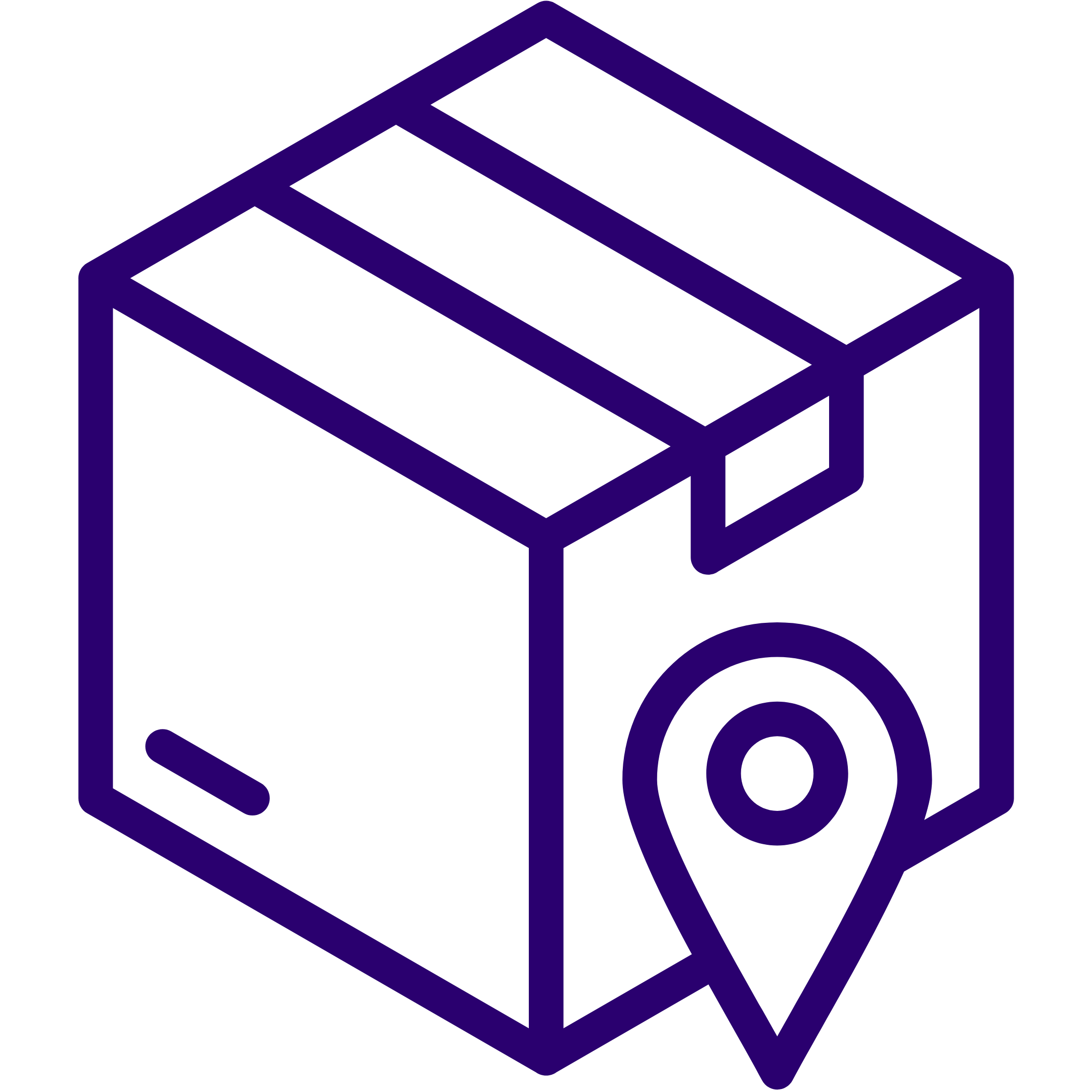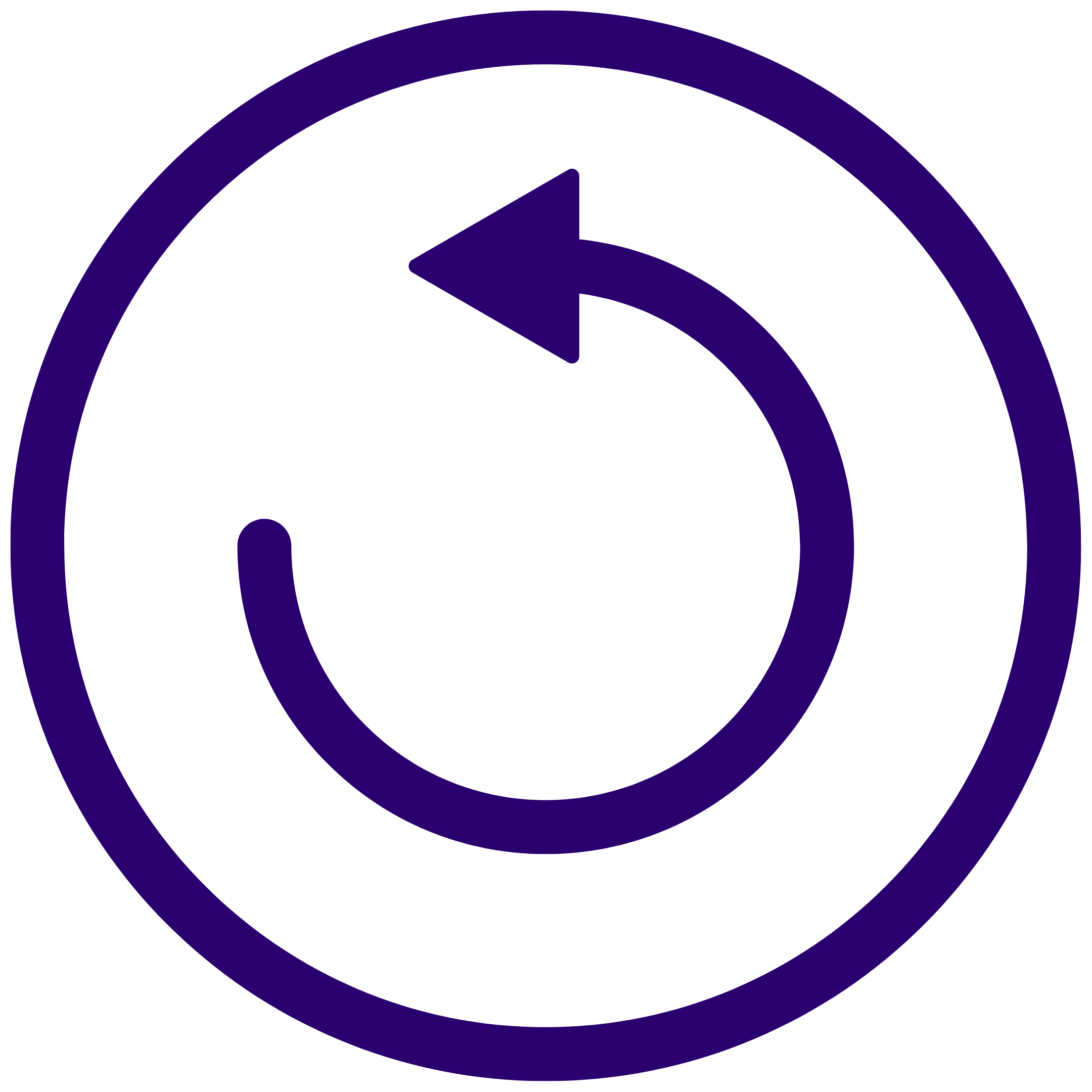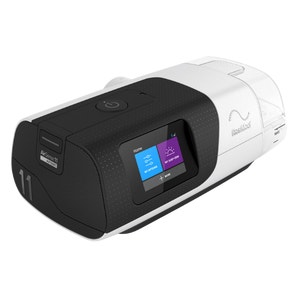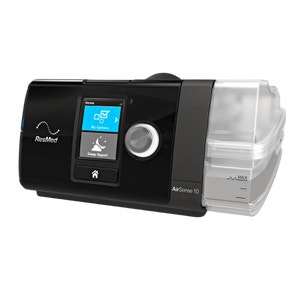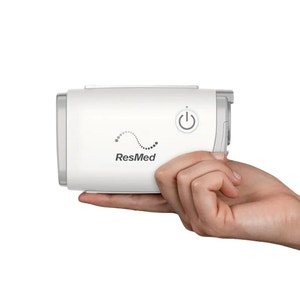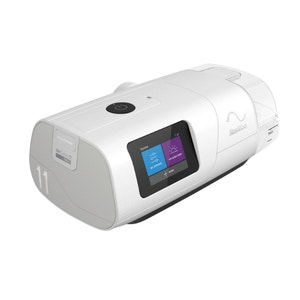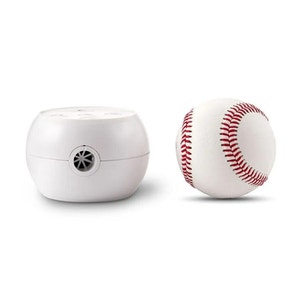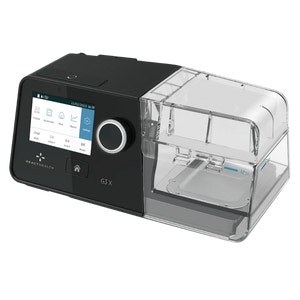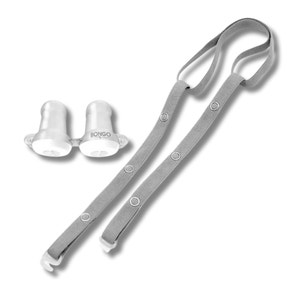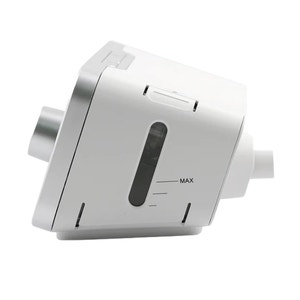
 Resvent iBreeze Auto CPAP Machine with Heated HumidifierSpecial Price $340.00 Regular Price $570.00
Resvent iBreeze Auto CPAP Machine with Heated HumidifierSpecial Price $340.00 Regular Price $570.00
Types of CPAP Machine
CPAP Machine
A standard CPAP machine, also called ‘fixed pressure’ or ‘set pressure’ CPAP, delivers one continuous pressure setting all night long. These are the most commonly prescribed type of CPAP machine, and are considered the most effective healthcare for treating obstructive sleep apnea.
APAP Machine (Auto CPAP)
APAP machines auto-adjust your air pressure settings according to your needs. Your healthcare provider determines a range of pressure settings, then the APAP uses an advanced algorithm that monitors your breathing pattern and sleep quality.
Explore APAP MachinesBiPAP Machine (Bilevel CPAP)
BiPAP, or bilevel machines, alternate between two levels of pressure settings. A high pressure as you inhale provides the therapy you need, while a lower pressure during exhalation makes it easier to breathe. This provides a more natural breathing pattern for CPAP users with difficulty breathing out against a fixed pressure.
Explore BiPAP MachinesTravel CPAP Machine
These portable CPAP devices are designed with a smaller footprint for easy travel, but offer the same pressure strength and comfort features as a full-size CPAP machine! Many include unique features that make it easier to use your CPAP on the go– like auto-altitude adjustment– but some may not be appropriate for everyday therapy.
Common CPAP Questions
What Does a CPAP Machine Do?
Continuous Positive Airway Pressure (CPAP) is a non-invasive therapy used to help people with Obstructive Sleep Apnea (OSA) to breathe while they sleep.
When a person has OSA their airway can collapse during sleep, causing pauses in breathing anywhere from 5 to 100+ times per hour. A CPAP machine uses a gentle flow of air pressure to keep the airway open, allowing you to have healthy and restorative sleep.
What Are the Side Effects of Using a CPAP Machine?
The side effects of CPAP therapy are generally mild and easily preventable. The most commonly reported side effects are dry mouth, nasal congestion, or sore throat– all of which can be addressed through simple humidification.
Other potential side effects, such as skin irritation and redness, are easily preventable through proper cleaning and maintenance.
A less common side effect called aerophagia– the medical term for swallowing air– can lead to gas and bloating. This generally only occurs when pressure settings are too high, and need to be adjusted by your doctor or sleep specialist.
Do I Need a Prescription for CPAP Therapy?
Yes, and we can help obtain or update it for you! FDA regulations require a prescription for CPAP machines, CPAP masks, and CPAP supplies such as humidifiers. This is to ensure that you receive the right therapy and the right CPAP settings.
CPAPsupplies.com will connect with your healthcare provider to obtain your prescription for you, saving you time and money! If you already have your prescription in-hand you can send it quickly and easily through our secure online submission form.
How Do I Get Started?
Talk to your doctor if you suspect that you may have obstructive sleep apnea or other sleep disorders. Your healthcare provider will prescribe a sleep study to determine if continuous positive airway pressure (CPAP) is right for you.
Afterwards, you’ll be given a prescription for CPAP therapy that includes the right type of machine and pressure settings.
How Do I Choose a CPAP Machine?
With so many options to choose from, many first-time CPAP users have a lot of questions about what to look for in an airway pressure machine. Should you pick fixed pressure or auto-adjusting? Will you need a nasal pillow or full face mask? And do you really need that heated humidifier?
Relax! Your dedicated Sleep Specialist can help you decide on the right CPAP machine, the best CPAP mask for you, how to find the proper mask fit, and even how to avoid possible side effects. Give us a call at 1-866-298-6482 or send an email to info@cpapsupplies.com!

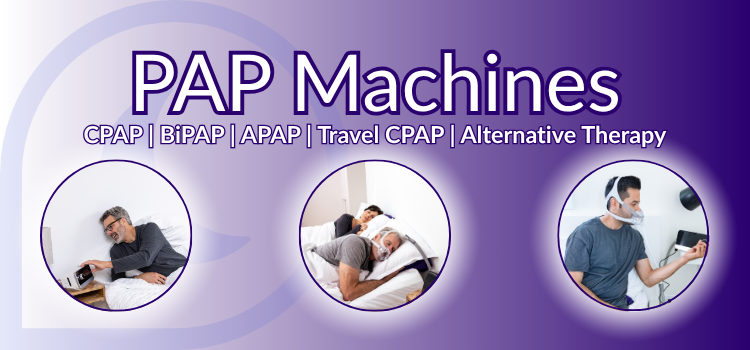
Types of PAP Machines
CPAP Machine
A standard CPAP machine, also called ‘fixed pressure’ or ‘set pressure’ CPAP, delivers one continuous pressure setting all night long. These are the most commonly prescribed type of CPAP machine, and are considered the most effective healthcare for treating obstructive sleep apnea.
APAP Machine (Auto CPAP)
APAP machines auto-adjust your air pressure settings according to your needs. Your healthcare provider determines a range of pressure settings, then the APAP uses an advanced algorithm that monitors your breathing pattern and sleep quality.
BiPAP Machine (Bilevel CPAP)
BiPAP, or bilevel machines, alternate between two levels of pressure settings. A high pressure as you inhale provides the therapy you need, while a lower pressure during exhalation makes it easier to breathe. This provides a more natural breathing pattern for CPAP users with difficulty breathing out against a fixed pressure.
Travel CPAP Machine
These portable CPAP devices are designed with a smaller footprint for easy travel, but offer the same pressure strength and comfort features as a full-size CPAP machine! Many include unique features that make it easier to use your CPAP on the go– like auto-altitude adjustment– but some may not be appropriate for everyday therapy.
Common CPAP Questions
What Does a CPAP Machine Do?
Continuous Positive Airway Pressure (CPAP) is a non-invasive therapy used to help people with Obstructive Sleep Apnea (OSA) to breathe while they sleep.
When a person has OSA their airway can collapse during sleep, causing pauses in breathing anywhere from 5 to 100+ times per hour. A CPAP machine uses a gentle flow of air pressure to keep the airway open, allowing you to have healthy and restorative sleep.
What Are the Side Effects of Using a CPAP Machine?
The side effects of CPAP therapy are generally mild and easily preventable. The most commonly reported side effects are dry mouth, nasal congestion, or sore throat– all of which can be addressed through simple humidification.
Other potential side effects, such as skin irritation and redness, are easily preventable through proper cleaning and maintenance.
A less common side effect called aerophagia– the medical term for swallowing air– can lead to gas and bloating. This generally only occurs when pressure settings are too high, and need to be adjusted by your doctor or sleep specialist.
Learn more here with our helpful blog about the '7 Most Common CPAP Machine Side Effects (and Ways to Avoid Them)'.
Do I Need a Prescription for CPAP Therapy?
Yes, and we can help obtain or update it for you! FDA regulations require a prescription for CPAP machines, CPAP masks, and CPAP supplies such as humidifiers. This is to ensure that you receive the right therapy and the right CPAP settings.
CPAPsupplies.com will connect with your healthcare provider to obtain your prescription for you, saving you time and money! If you already have your prescription in-hand you can send it quickly and easily through our secure online submission form.
How Do I Get Started?
Talk to your doctor if you suspect that you may have obstructive sleep apnea or other sleep disorders. Your healthcare provider will prescribe a sleep study to determine if continuous positive airway pressure (CPAP) is right for you.
Afterwards, you’ll be given a prescription for CPAP therapy that includes the right type of machine and pressure settings.
How Do I Choose a CPAP Machine?
With so many options to choose from, many first-time CPAP users have a lot of questions about what to look for in an airway pressure machine. Should you pick fixed pressure or auto-adjusting? Will you need a nasal pillow or full face mask? And do you really need that heated humidifier?
Relax! Your dedicated Sleep Specialist can help you decide on the right CPAP machine, the best CPAP mask for you, how to find the proper mask fit, and even how to avoid possible side effects. Give us a call at 1-866-298-6482 or send an email to info@cpapsupplies.com!

